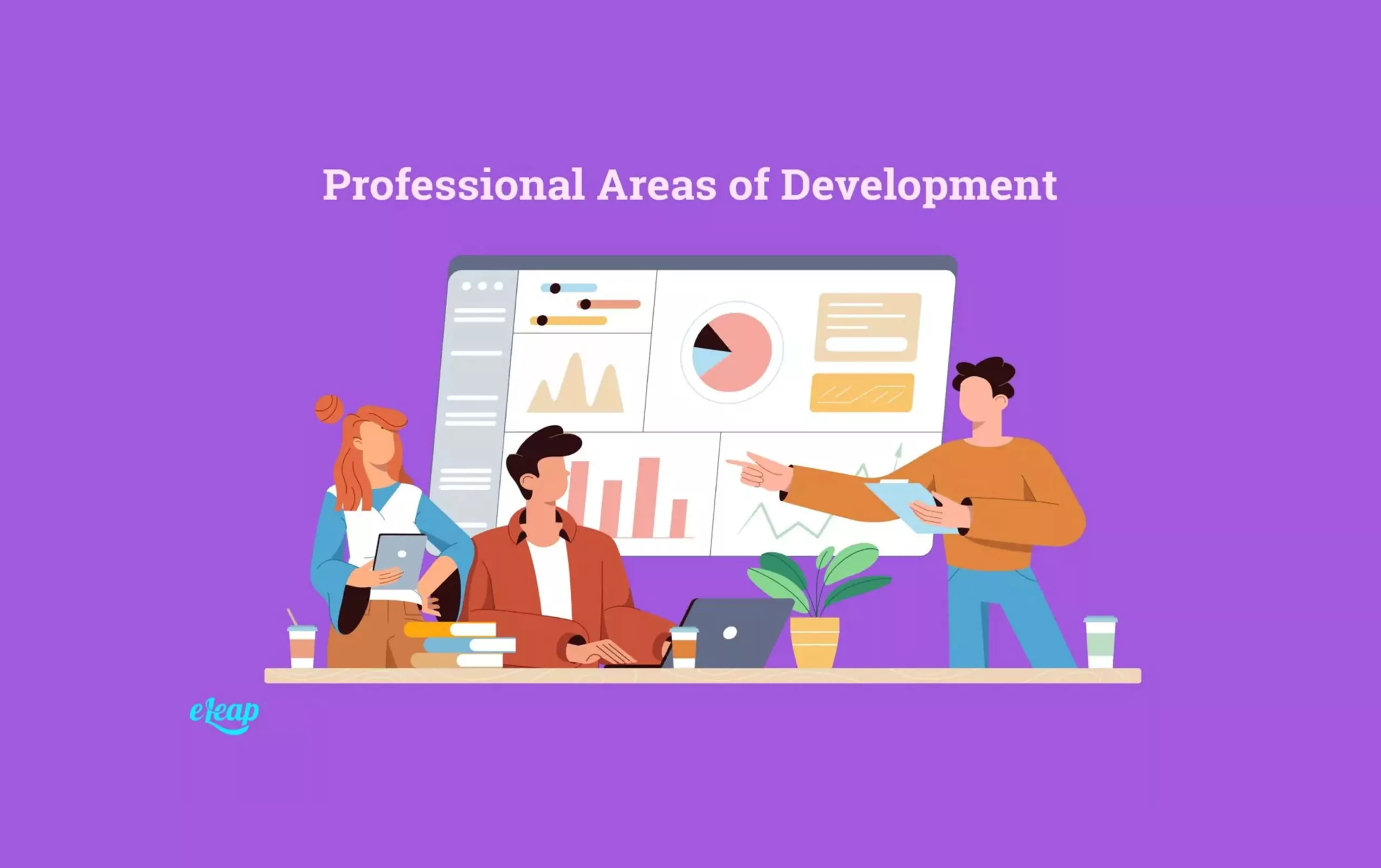Professional Areas of Development

Focusing on professional areas of development can open a new communication path for you and your team members. Simply posing the question, “what did you want to be when you grew up?” offers insight into the adults we’ve become.
Several times throughout our professional and personal careers, we might think of this question on our own. For some of us, we wonder how we ended up where we are from the dreams we had as a child.
Any time is a good time to take stock of our work and professions and reflect on what we want to achieve and whom we want to become in the future. As managers of people, you have a responsibility to acknowledge the fact that your workforce constantly evaluates various aspects of their professional lives.
They also ask these same questions about the company and its role in it. Your responsibility is to act as a guide throughout the process of career advancement by providing knowledge, feedback, and ongoing inspiration.
Shifting Landscape of Professional Areas of Development
Over the past twenty years, there has been a substantial shift in the way careers are developed. When a new worker was employed in the past, there used to be a predetermined path for them to take in their career. But as businesses have become more streamlined and centralized, the old career ladder has been eliminated.
The long-term relationship that once existed between an employee and the company was severed as a result of downsizing. The concept of spending one’s entire working career at a single business is unfathomable today. Individuals no longer feel uncomfortable moving jobs frequently because there is less of a social stigma associated with doing so.
A poll conducted by CareerBuilder found that 45% of college graduates will remain at a job for two years or less and that by the time workers reach the age of 35, 25% of them will have held five jobs or more.
A valued employee who is dissatisfied with their career development can easily leave a company and find a new job with a 15% salary increase if they so choose, as the current unemployment rate is at a historic low and the rate of employees quitting their jobs is at a historic high. This is another factor that affects professional areas of development.

Understand the Need to Put Your Employee First
There is an old saying that managers are the reason employees quit organizations rather than the other way around. The converse is also true: employees are more likely to remain with a company when their supervisors are invested in their success.
If you want to improve employee retention, you have to create an environment in which you put them first. This includes focusing on professional areas of development. When asked, many employees say that lack of growth is the main reason for leaving their employer, adding that management was not invested in internal growth. Furthermore, employees are disheartened by the overall lack of communication.
In order to retain your workforce and reduce turnover, you need to provide consistent communication and collaboration, as well as opportunities for professional development. It’s no longer acceptable to not consider these issues as a business owner.
It’s Essential to Assess Your Review Processes
With constant shifting, how can you best assist your employees in identifying and advancing along the path that best suits them? Having a conversation is the starting point for everything.
In an ideal situation, you meet with each employee regularly to discuss various topics, such as check-ins on ongoing projects or periodic performance reviews. Regular reviews of employees’ performances are rapidly becoming an indispensable component of human resource management.
It’s a very safe bet that someone starting out in their career isn’t working in their dream job, but what exactly is that dream job? Which abilities does the employee need to acquire to become qualified for that dream job, and how does the current employment contribute to the individual’s development in those areas?
Are there any initiatives that an employee of your company may work on that would provide them with valuable experience? Is there a more experienced colleague in another division who can act as a guide and offer pointers? Are there opportunities for an employee to improve their skills outside of the organization, such as through volunteer work or professional development programs?
Encourage Employees to Work on Professional Areas of Development
As a manager, you should encourage your staff to look for opportunities to learn and improve, and you should also advocate on their behalf. Since career pathways are no longer unchanging, it is more beneficial to help people develop their talents than to concentrate on getting them into a certain function.
It is common knowledge that technological advances occur at a rapid pace and that these advancements have an effect on every occupation. Employees need to continue obtaining new skills to keep up.
According to a survey conducted by Udemy, 84% of American workers believe there is a skills gap, and at least 51% of those workers would leave a job if it did not provide the necessary training. Employees are responsible for their education, but managers are responsible for providing encouragement and access to appropriate training opportunities.
Along with technical expertise, a growing number of employers are looking for candidates with “soft skills.” Employees can acquire transferable skills that can be utilized in many different job domains by developing other soft skills such as intellectual curiosity, grit, and adaptability. When firms encourage their employees to collaborate and be creative, such employees must possess the skills of problem-solving, empathy, and communication.
Recognize Current Skills
Recognize the value of the contributions made by individual employees. For many years, the best way for an employee to advance their career in a firm was to be promoted to a management position. Suppose the worker was successful in their previous role. In that case, it is hard to imagine why they wouldn’t continue to be successful as they take on greater responsibilities.
Your top salesperson may be successful due to the fact that they are self-motivated and competitive. However, this does not imply that they are able to motivate others or create an atmosphere conducive to teamwork. However, the qualities that may make an individual contributor exceptional are not always transferable to the skills required to successfully manage other people.
Despite this, many workers possess essential skills and expertise and are interested in seeing advancement in their jobs. A solution that is being implemented by some businesses is a career path for individual contributors. In this path, employees can advance within their areas of competence while avoiding the need to supervise other employees.
Assist staff members in understanding their place within the organization. It may be challenging, particularly for entry-level employees, to understand how their positions fit within the larger context of the organization and the objective it seeks to fulfill. As a manager, you are responsible for providing that perspective.
Discuss the goals of the organization, why they were chosen, why they are important. And how the contributions of the team make a difference in achieving those goals. Discuss the latest company news and provide an explanation of its relevance. Have conversations with workers on the career advancement possibilities available in their division as well as in others. Assist staff members in appreciating their importance to the organization and visualizing their futures with it.
You can demonstrate to your staff in a methodical approach that the significance of their work can be demonstrated by pondering on the “why” behind the tasks they perform. Every group and individual in your company has the ability to formulate their own objectives at the same time that the company establishes its annual vision and the periodic objectives and key results (OKRs) that will support it.
After that, everyone will be linked to the overall objective. Make use of metrics to monitor those objectives and results so that managers and employees can track progress and so that employees can grow their skill sets.
Conclusion
Focusing on professional areas of development is a cooperative endeavor. Even if you want your employees to be the ones to drive it, you still need to build the environment. A healthy work environment will not only encourage and support but also generates agreements revolving around it.
In addition, you could be required to instruct staff on how to take responsibility for their professional growth. It requires time and effort to work on their trajectory and provide this advice. But the investment in their abilities makes them more valuable and more loyal. Which are factors that ultimately benefit you both.
Increasing your responsibility in your team’s professional development simply makes good sense. Any chance you to make sure they feel valued and accepted within the team is an opportunity to increase their well-being and motivation. Far too often, we let those opportunities slip through.